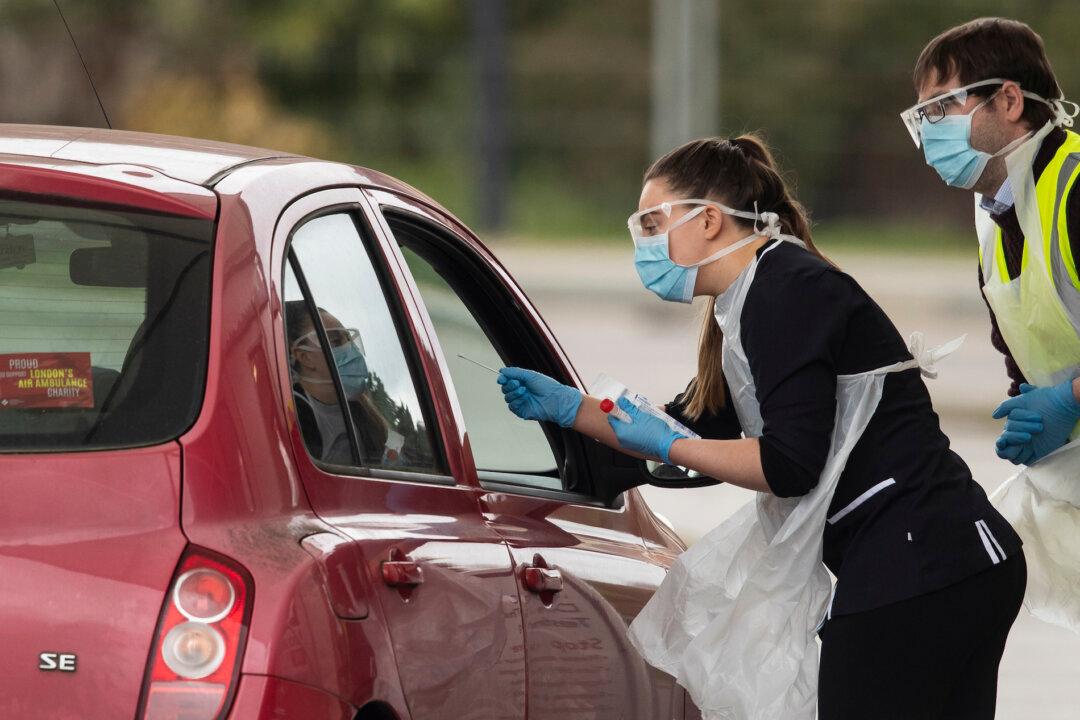Regular COVID-19 testing in England is to be expanded to 400,000 people as part of a national survey to track the spread of the CCP virus, the UK government said on Wednesday.
The government’s aim is to increase weekly data to better track asymptomatic cases and local outbreaks, helping to localize any future measures to stop the virus spread and impact fewer people.





